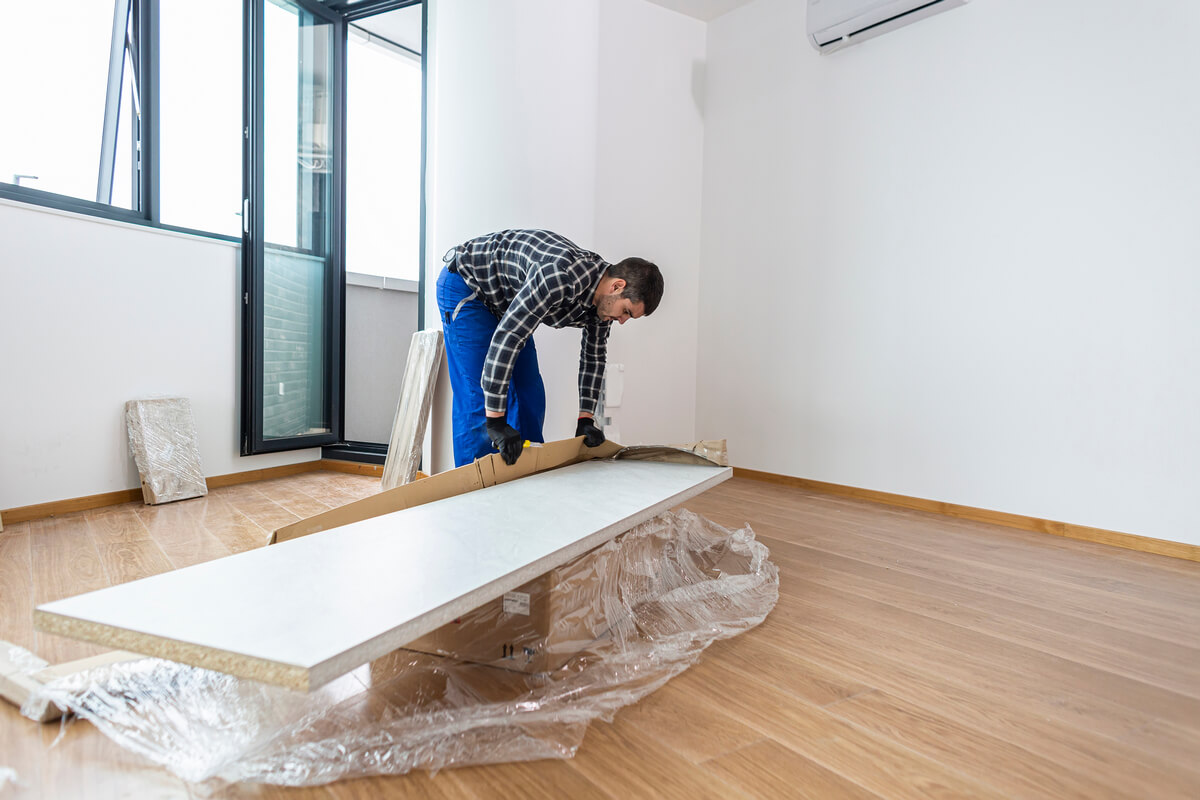It’s always tempting to try to handle a home renovation or repair on your own. You can save money by doing it yourself, and you can feel the pride and satisfaction of working with your hands.
DIY projects aren’t always a wise choice, though, especially in areas that you don’t have much experience with. If you try to tackle a DIY repair without the right tools or knowledge, you might end up creating a bigger problem.
Before you begin a DIY project, consider what the task really entails. Then, ask yourself these six questions to decide whether you should handle it yourself or hire a professional:

1. Do I have the right skills and experience?
You don’t have to be an expert to do certain repairs yourself. In this day and age, the internet is an incredibly helpful resource for homeowners interested in DIY projects. You may be able to teach yourself how to complete a repair with the help of videos or other online resources.
However, some renovations require a higher level of skill that’s much harder to acquire on your own. Even if you could learn each step of the process by watching a video or reading online articles, it might not be worth the trouble. A professional will do the job much more quickly because they’ve done it hundreds of times before, but it will likely take you considerably longer if you’ve never attempted this kind of project.
As you research the steps involved, ask yourself whether any of the tasks are familiar or if they’re all brand new to you. It’s important to be fully honest with yourself as you assess your skills and the requirements for the project. While it can be beneficial to learn new skills, if you find yourself in over your head, you might regret your decision to DIY.

2. Do I have the necessary materials?
One of the main reasons homeowners enjoy DIY projects is because they can save money. Hiring a contractor to complete a repair or renovation isn’t cheap, so you might consider doing it yourself to reduce your costs. You may not save much money if you have to purchase all the tools and supplies for the project, though.
Before you dive into the DIY project, make a list of every item you’ll need for the repair. Then, calculate how much it will cost to buy all the items you don’t already have. If you’ll have to spend a considerable amount of money on equipment, it might be more cost-effective to hire a professional instead.

3. How much time will this project take?
A common issue for homeowners who try DIY projects is not having time to complete the repair. If you’re confident that you can get the job done in one session, you probably don’t have to worry about how long the project will take. If the repair will be a lengthier task, though, you should think about how much time you have to devote to it. You don’t want to start a project and stop halfway through because you don’t have time to finish it.
Unless it’s a very small project, most home repairs take longer than predicted. When you calculate the timeline for a multi-day renovation, add extra time to the schedule to make it more realistic. Certain steps may take longer than expected, or you might run into delays if you need to source the right materials.
When you’re too busy to give the project the attention it deserves, you also risk completing the job poorly. If you rush through it because you’re running short on time, the quality of the renovation may suffer. Depending on the type of repair, this might even create a safety issue in your home. To avoid having to redo the repair in the future, consider hiring a professional.

4. Are there safety concerns?
Most home projects are fairly safe, but some could pose a risk. When deciding whether or not to DIY a project, ask yourself about the worst case scenario. If the worst that could happen is a failed home repair, you probably don’t have to worry too much about safety. If the worst case scenario involves serious injury, though, caution is critical.
Your experience also plays a role when evaluating the safety concerns. If you’ve done a similar project before, you’ll likely feel more confident about your ability to do the task safely and correctly. If this is completely new to you, it might be better to hire a professional.

5. Is it generally recommended to DIY this task?
Everyone has different skills, and some homeowners may be more equipped to handle certain projects than others. In general, there are some broad recommendations about which projects are okay to do yourself and which should be avoided.
Most contractors agree that the following projects are manageable for most homeowners to do on their own:
Sanding, painting, and wallpapering
Installing tiles or kitchen backsplashes
Installing faucets
Installing cupboards, drawers, curtain rods, and other hardware
Here are some projects that, in most cases, should be left to professionals:
HVAC installation or maintenance
Plumbing
Electrical work
Roofing
These systems are very intricate and often expensive to repair or replace. Unless you have plenty of experience, a DIY project could backfire.

6. What does my family think?
If you live alone, you’re in charge of the repairs you make in your home. If you live with your family, you should consult your household about DIY renovations. Your spouse or partner likely has a good idea of your skills, so they can give valuable input into the situation.
It’s also important to consult your household because they’ll be living in the home when it’s under construction. If you’re making a small and short-term repair, there probably isn’t much cause for concern. If your DIY project will disrupt your family’s daily routine for a prolonged amount of time, it may need more careful consideration.
There are plenty of repairs and renovations that most homeowners can do themselves. However, it’s important to be honest with yourself about whether you have the resources and experience to complete a DIY project. The last thing you want is to put time and money into a DIY repair only to have to hire a professional anyway.
No matter how handy you are, it’s always helpful to have a trusted repairman you can go to for advice on these projects. By carefully considering all that the project entails, you can be sure that you’ll make the safest and most cost-effective decisions.



